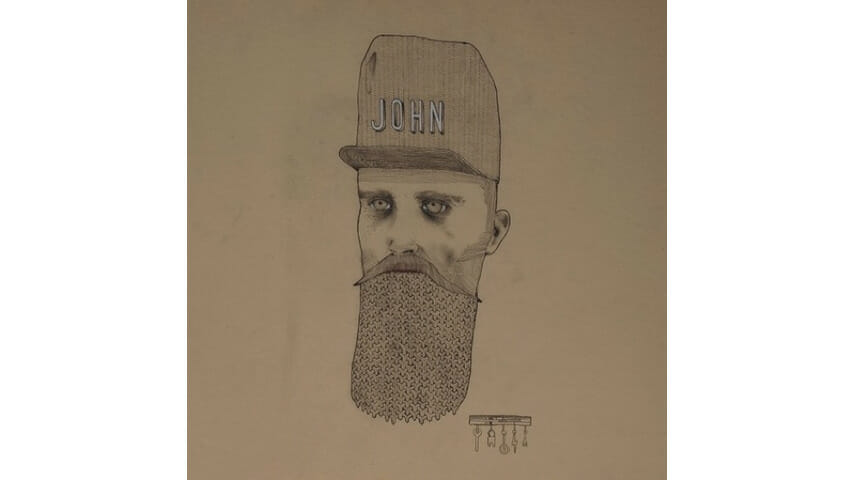Owl John: Owl John

Frightened Rabbit’s Scott Hutchison is no stranger to the world of solo projects. Back in 2003 when the band had just begun, Hutchison was essentially going it alone. Frightened Rabbit gradually added members and fleshed out its sound, but Hutchison was still writing the bulk of the parts for these songs. That all changed upon the release of their major label debut, Pedestrian Verse, when the band took a more collaborative approach to its songwriting and set the goal to continue down that road. But thus, Hutchison lost an area of creative output that solo work allows, an outlet for unfiltered introspection with no parameters set forth.
Frightened Rabbit has become known for its triumphant choruses and raw, gritty lyricism; it’s what propelled the band to such wide acclaim across the globe. But on Owl John, the debut album from Hutchison’s new solo project, those cheerful feelings of shouting along to choruses are long gone. They’re traded in for brooding bursts of self-loathing and insecurities. Thematically it’s a huge departure from what Frightened Rabbit fans have come to expect from the songwriter, but sonically it’s not too harsh of a transition. Perhaps that’s because Hutchison recorded the album with Frightened Rabbit cohorts Andy Monaghan and Simon Liddell, knocking out an instrumental arrangement a day before Hutchison would hull up and craft lyrics to all of the work.
The album starts off with a dissonant fuzz and slowly unraveling percussive line, something that immediately places a new set of expectations for the listener. As the delayed guitar and reverb-washed processed vocals bubble into the mix, it’s clear that the sounds of opening track “Cold Creeps” will be unlike anything Frightened Rabbit has previously explored.
-

-

-

-

-

-

-

-

-

-

-

-

-

-

-

-

-

-

-

-

-

-

-

-

-

-

-

-

-

-

-

-

-

-

-

-

-

-

-

-








































